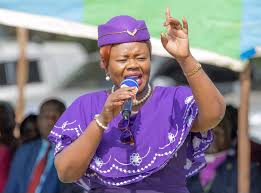Githunguri Member of Parliament (MP) Gathoni Wamuchomba has raised alarm over what she describes as the erosion of parliamentary independence, claiming that powerful interests led by the Executive have captured the legislative arm of government.
Speaking during a live television interview on Thursday night, September 4, 2025, Wamuchomba said that the National Assembly is no longer a free space for lawmakers to advocate for the interests of their constituents. Instead, she argued, parliamentary proceedings are increasingly dictated by the Presidency and other external forces.
“The independence of Parliament has been drowned by other forces and powers to the extent that a Bill will be dropped off the tray just because the Presidency is interested in a certain Bill,” she said.
According to the outspoken legislator, this undue influence has made it nearly impossible for MPs to advance people-centered legislation. She lamented that bills and motions are often dropped, delayed, or overshadowed if they do not align with the Executive’s priorities.
Wamuchomba cited her own experiences as evidence of bias and dictatorship within Parliament. She revealed that a bill she sponsored to provide for elderly persons was shelved during the heated debate over the Finance Bill. Similarly, her motion to highlight widespread violations of women’s rights during childbirth has languished on the order paper for over a year without debate.
“I don’t think Parliament is the right platform to advocate for people’s rights anymore. I am a victim in this Parliament,” she lamented.
Her sentiments echo similar concerns raised by Embakasi East MP Babu Owino, who has previously accused the Speaker of the National Assembly of siding with the government. Babu has argued that as long as the Speaker and the majority align with the Executive, dissenting MPs have little chance of influencing legislation.
The mounting complaints by legislators point to a growing crisis of confidence in Parliament’s autonomy. Critics warn that if unchecked, the subordination of the legislature to the Executive could undermine democratic governance and silence critical voices advocating for citizens’ rights.

